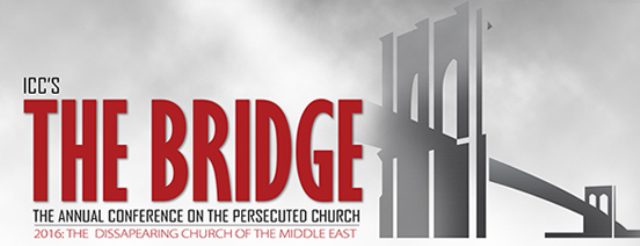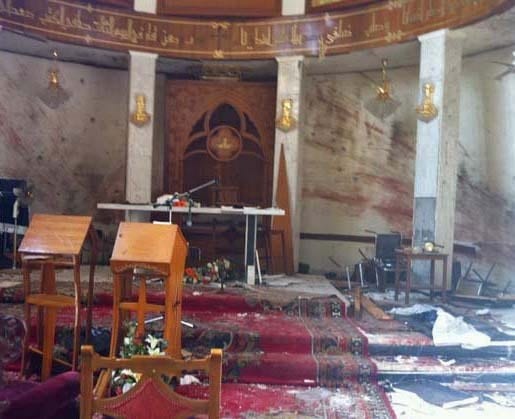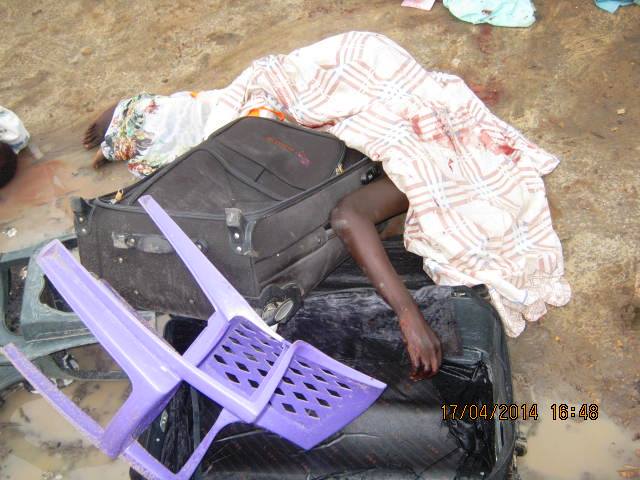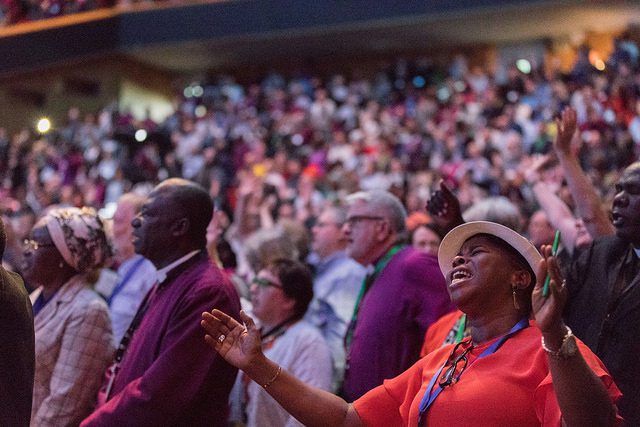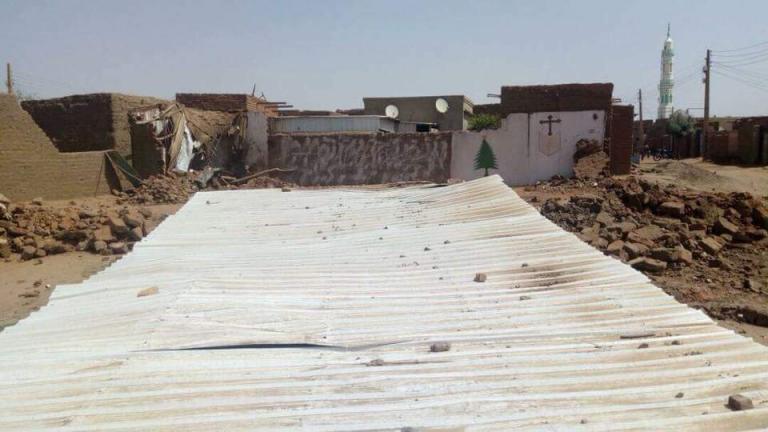Later this week, July 7-9, International Christian Concern (ICC) will host The Bridge, “The Annual Conference on the Persecuted Church.” For this first annual conference, the theme is “The Disappearing Church of the Middle East.”
Taking place in Silver Spring, Maryland, just outside the nation’s capital, the goal of the conference is to gather and mobilize church members and pastors from around the nation, and to be a bridge — connecting Western Christians with their persecuted brothers and sisters.
I’m glad that International Christian Concern is planning to make this an annual event. American Christians seem to have memory impairment when it comes to remembering persecuted Christians around the world and understanding their duty as fellow Christians, and their accountability before God, to be an advocate, an intercessor, and a defender of these brothers and sisters.
Maybe you think I am being a bit harsh? Maybe you’re right. Twenty-three years of doing advocacy for persecuted Christians, and still finding clueless Christians across the nation, will do that to you.
Consider that it was September 1996 when churches observed the first International Day of Prayer for the Persecuted Church (IDOP). IRD worked to make that a reality along with other Christian religious freedom groups and leaders such as the late Chuck Colson, Ravi Zacharias, and others.
By 2001, this was the announcement from Religion Today editor Janet Chismar on Crosswalk.com, November 2:
On Nov. 4, more than 100,000 U.S. churches are expected to join with 200,000 churches in 130 countries to observe the International Day of Prayer for the Persecuted Church (IDOP). Before the first IDOP in 1996, most Christians in the United States and other free countries were unaware of the magnitude of Christian persecution, says Steve Haas, founder and spokesperson of Prayer for the Persecuted Church. . . .roughly 200 million Christians today face persecution (physical abuse, family separation, incarceration, and martyrdom) and nearly 400 million more face discrimination and restriction as a result of their Christian faith.
But IDOP was not created just to enable those of us who are Western Christians to check off the “praying for the persecuted” box, and feel good about going on as normal. It was meant to emphasize the oneness of Christ’s Body around the world. It was meant to make real the idea that if one part of that Body suffers, the whole Body suffers.
Not just Western Christians were praying on that day. In China, persecuted house church Christians were praying for Christians threatened by Islamic blasphemy laws in Pakistan. In Egypt, Christians who couldn’t even repair a church toilet without government permission were praying for Christians tortured and starved in North Korean prison camps. In Sudan, Christians being enslaved and eradicated by their own Islamist government were praying for Christians in India being attacked by radical Hindus.
Not long after IDOP’s creation, activists worked to pass legislation ensuring U.S. foreign policy took persecuted religious believers into consideration. The International Religious Freedom Act of 1998 (IRFA) was a watershed moment, enshrining ways to influence nations’ treatment of their religious minorities into U.S. law. There were those who demanded to know how the United States “dared” to dictate morality to other nations. There are even more of those people today. But to persecuted Christians and numerous other religious minorities around the world, IRFA was a glimmer of hope in the midst of many a desperate situation.
The IRFA law continues to work on behalf of these beleaguered ones — when it is implemented. IRFA provided new tools to assist religious freedom advocates — a State Department Office of International Religious Freedom; the U.S. Commission on International Religious Freedom (USCIRF); the annual reports from both offices; and other resources. But all of the IRFA provisions need the involvement of concerned American Christians, passionate about helping the persecuted, to be effective. USCIRF’s existence has been threatened several times while most American Christians remain unaware, or at least apathetic, about the situation that faces other Christians across the world.
The persecution of Christians across the Middle East is not a new thing. But the Islamic State and the blood-drenched sands in Libya that were broadcast across the world seem to have shocked some Western Christians into desiring to respond in one way or another. (Some were more concerned about sending ‘love letters’ to ISIS than desiring to urge defense of their persecuted brothers and sisters!) A conference on the persecuted church — in which American Christians have an opportunity to see and hear from and look into the eyes of Christians who have suffered for the sake of the Gospel, and to hear from those who have been called to walk alongside the suffering ones is quite timely.
It is my prayer that each attendee of The Bridge Conference will go away determined to do more for the persecuted church around the world. That they will:
- Mobilize friends and fellow church members — and even pastors! — to be more faithful advocates.
- In the same manner that God told Israel to remember His commands, teach the stories about persecuted brothers and sisters diligently to their children, talk of those who suffer and die for their faith when they sit in their house, when they walk by the way, when they lie down, and when they rise up.
- If they are a millennial or younger — realize that fighting the global persecution of the Church is as much a “justice” issue as preventing sex trafficking, combating hunger, and working for racial justice.
If these things happen, the Western Church could be mobilized to advocacy and action. Persecuted Christians will constantly be in the minds and hearts of American Christians. And the annual conference on the persecuted church will not be a “reminder” but a time for all those working in solidarity to come together for ongoing encouragement.

